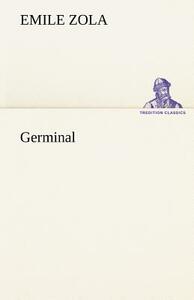You need to sign in or sign up before continuing.
Take a photo of a barcode or cover
Zola's masterful writing drags the reader through miner's muck. There is valid criticism that he is too fair to the pit bosses, but over and over I find myself loathing their willful ignorance.
Maheude's transformation is dramatic; leads the destruction and reconstruction of the women. No character is unimportant, no event is accidental. It is a nearly perfect work.
Maheude's transformation is dramatic; leads the destruction and reconstruction of the women. No character is unimportant, no event is accidental. It is a nearly perfect work.
The book depicts the conditions of French miners in the late nineteenth century. Using an outsider who takes up with the miners community, the rather fetching and ideal driven Etienne. With Etienne your able to see a neat cross-section into the deprivations of the labouring classes at the time but also their sometimes emotionally driven sense of solidarity and collective purpose.
The main core of the book is based on inter-personal interactions and events surrounding a labour strike, but it conveys well the political climate of the early labour movement with its nods to Marx, Bakunin and Proudhon but also the direction and purpose of a youthful Social Democracy particularly with its upbeat ending.
The main core of the book is based on inter-personal interactions and events surrounding a labour strike, but it conveys well the political climate of the early labour movement with its nods to Marx, Bakunin and Proudhon but also the direction and purpose of a youthful Social Democracy particularly with its upbeat ending.
See also: my review of [b: Cousin Bette|59144|Cousin Bette|Honoré de Balzac|https://i.gr-assets.com/images/S/compressed.photo.goodreads.com/books/1388880372l/59144._SY75_.jpg|1028809].
An assigned reading for a college class. My "classics" digestion enzyme was not being secreted. I failed to appreciate it.
A classic? Perhaps. A masterful depiction of its era? Perhaps. At all enjoyable? Not by me and certainly not at the time.
And once again: it seems there are so many positive reviews of the text that I ought re-visit it. (We'll see...)
An assigned reading for a college class. My "classics" digestion enzyme was not being secreted. I failed to appreciate it.
A classic? Perhaps. A masterful depiction of its era? Perhaps. At all enjoyable? Not by me and certainly not at the time.
And once again: it seems there are so many positive reviews of the text that I ought re-visit it. (We'll see...)
got bored + didn’t end up needing to finish it for my class assignment lol
adventurous
sad
tense
fast-paced
Plot or Character Driven:
Plot
Strong character development:
Yes
Loveable characters:
Yes
Diverse cast of characters:
Yes
Flaws of characters a main focus:
Yes
one of the most beautiful and saddest works of literature I've ever read.
couldn’t stand the audiobook narrator ): but i loved the parts of the book i got to, so i absolutely intend to pick it up again if i find a better recording
inspiring
reflective
slow-paced
dark
reflective
sad
tense
medium-paced
Plot or Character Driven:
Plot
Strong character development:
Complicated
Loveable characters:
Complicated
Diverse cast of characters:
Yes
challenging
reflective
tense
slow-paced
Plot or Character Driven:
A mix
Strong character development:
Yes
Loveable characters:
No
Diverse cast of characters:
Yes
Flaws of characters a main focus:
Complicated






